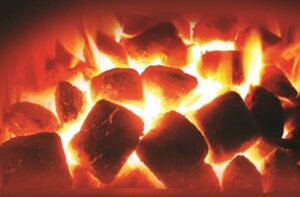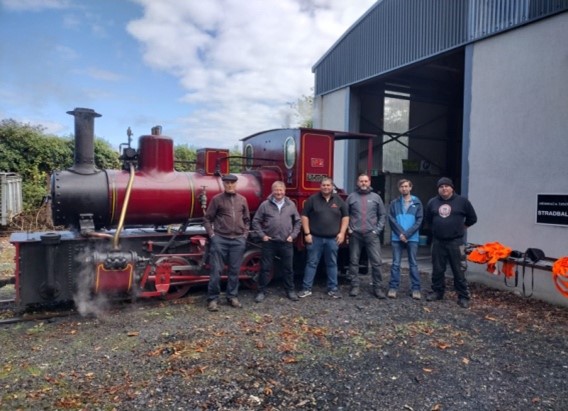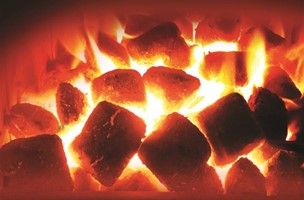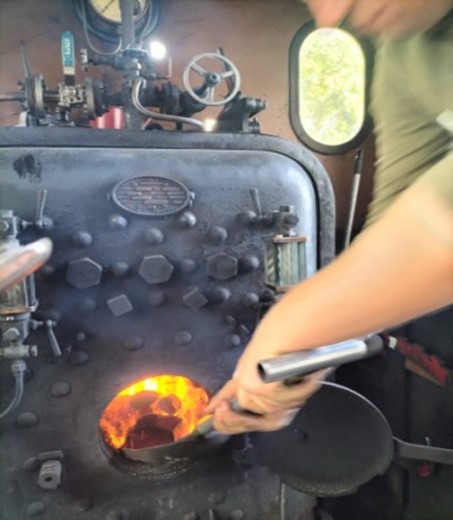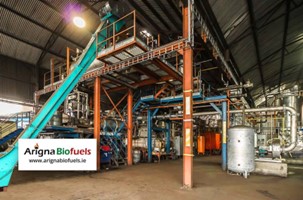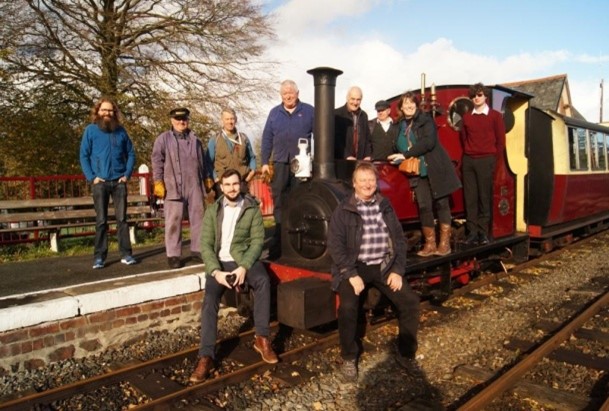
Historic buildings and machines form an important part of the UK’s heritage tourism industry, attracting millions of paying visitors every year. Thousands of people work and volunteer in it, and it forms part of the UK’s international identity. Steam engines, on railways and roads, in ships and factories, form a major part of this but their future is under threat from the end of coal as a fuel. To help them continue to inform, educate and entertain, an alternative Net-Zero-Carbon fuel is needed.
Three-C teams from Wales and Ireland drew on contacts from many different sectors to identify a suitable alternative fuel made from 100% biomass. This product will be trialled in several steam locomotives and its formula can be adapted to give optimum combustion performance. We will also research alternative local types of biomass so that biocoal for this niche market can be produced from local sustainable resources.
- More Info
- Gallery
- Interview
- Contact
The idea of combining elements of pyrolysis and a steam locomotive was originally mentioned as a joke, and then explored as a theoretical concept. It prompted some investigations with contacts in the heritage sector who confirmed that they had a problem with which we might be able to help.
The concept came from a Three-C partner meeting ideating session. Following discussions, team members used their personal contacts to identify the potential. These contacts in turn quickly brought in other specialists.
Original team members have skills in biomass processing, biochar production, community and business development. Second tier contacts include the R&D director of a biofuel manufacturer, an industrial historian and a senior manager of the UK National Railway Museum. Third tier contacts include a leading UK professor specialising in combustion, research colleagues working on biomass densification, various heritage railway operators in the UK and Ireland, and one of the last living steam locomotive designers in the world.
- Vision and idea was developed following a Three C partner meeting.
- Evidence of need was identified by enquires made by team members.
- Desktop research and internet search found other attempts to make a product in America and Belgium – both had been technically successful, but had not been commercialised.
- Three C team introduced to Heritage railway stakeholders and technical contacts via online meetings.
- Project quickly seen as having potential to develop as a Wales-Ireland ongoing collaboration.
- Stakeholders identified unique chance to bring two disciplinary teams together: Biomass/environment /and climate change mitigation working with historians, engineers and tourism operators.
- All stakeholders have identified that the timing of this initiative is exactly right with both economic and political support to meet a defined market need.
Very diverse target group:
- Heritage steam railway operators, museums and historic sites; their staff and volunteers.
- Visitors: older generation to remember experiences from the past
- Education: children and young people learning about the historic effects of industrialisation and steam power on the world, society and the environment.
- Tourism operators and managers
- Land managers, farmers, foresters and contractors (biomass production and harvesting)
- Land managers, farmers, foresters and contractors ( application of Biochar by-products to agriculture and the land)
- Ecologists and environmental groups and NGO’s. Monitoring biomass management, habitat creation and biodiversity gains
- Engineering : plant design, construction and maintenance
- Other regions that want to adapt the model to suite their local needs
- Politicians and policy makers – to influence the planning and regulatory framework.
Some of the “big ideas” were: Continuity Biocoal as a
- Alternative to fossil fuel
- Driver of a local, circular biomass carbon value chain
- A way of ‘rescuing’ historic assets which are about to become unusable
- A topic that could bring ‘Steam enthusiasts’ and Environmental scientists together to collaborate instead of being adversaries.
Helping heritage attractions reinvent themselves primarily as educators rather than just re-enactors.
Promoting localism, local distinctiveness and environmental regeneration.
Get more information on the first official testrun:
https://www.irishtimes.com/ireland/social-affairs/2023/08/06/were-not-just-looking-to-the-past-whistles-ring-out-in-stradbally-for-national-steam-rally/
UK/Wales:
Colin Keyse: colink@severnwye.org.uk
Ireland
Stephen McCormack: stephenmccormack@irbea.org

